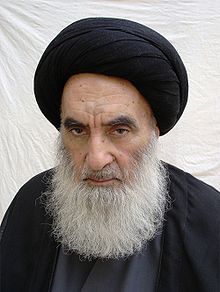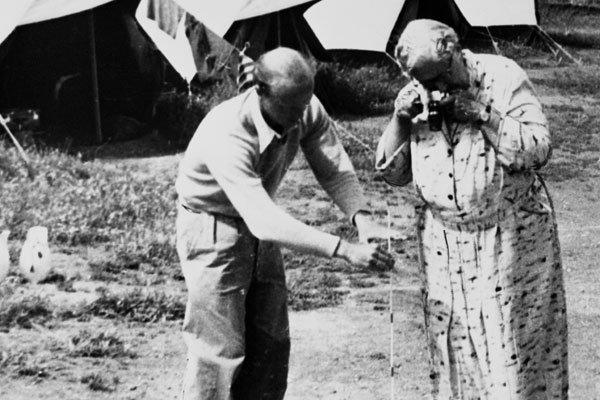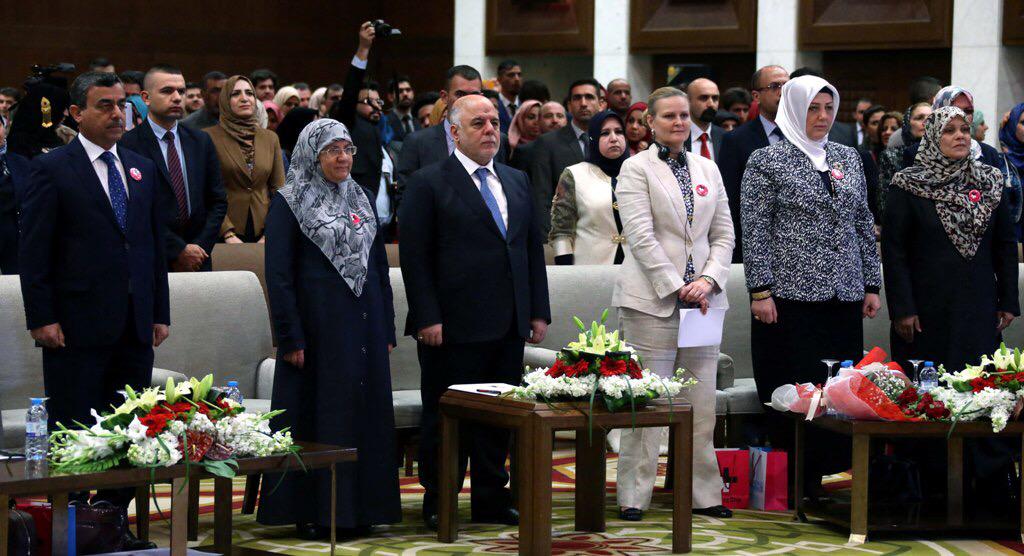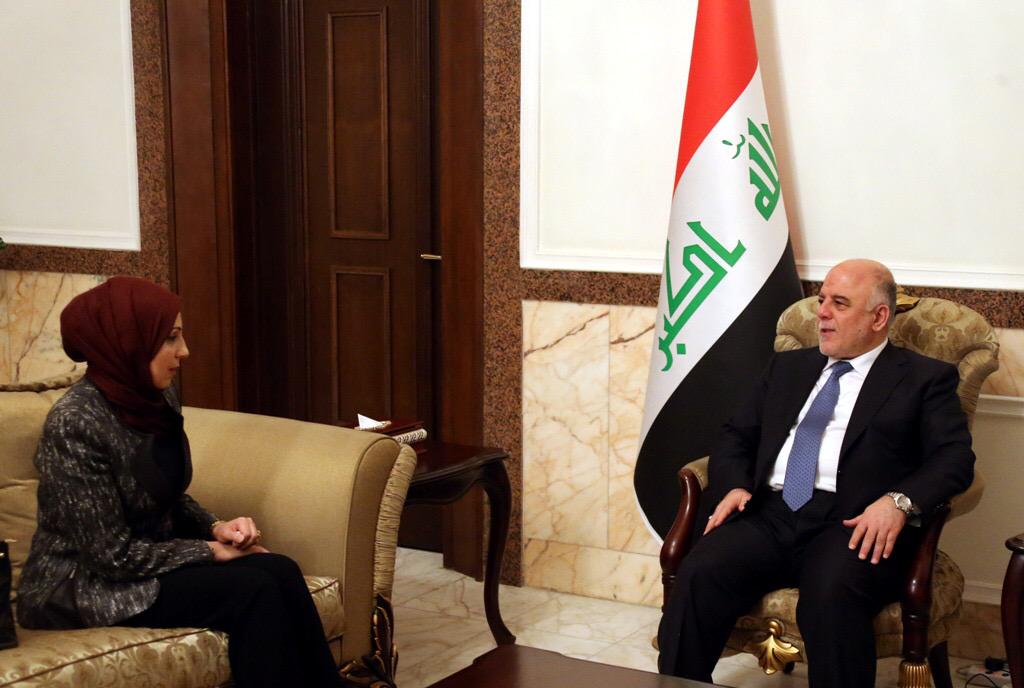February 26th, the Senate Veterans Affairs Committee heard from the VA led by Secretary Robert McDonald, we covered part of the hearing in Thursday's snapshot. McDonald is in his seventh month on the job. He replaced Eric Shinseki who resigned in disgrace. As Ranking Member Richard Blumenthal told McDonald in the hearing, "That has been one of the downfalls of the VA to this point, the lack of reliable truthful information. It was the downfall of your predecessor."
It was noted throughout the hearing and it sort of left a question mark hanging over whatever limited information the VA was able to provide in the hearing. Blumenthal is the Ranking Member and Senator Johnny Isakson is the Chair. The hearing was about the VA's budget request and the first panel was composed of VA employees led by McDonald. The others were Dr. Carolyn Clancy, well known fabulist Allison Hickey, Ronald Walters, Stephen Warren and Helen Tierney.
Senator Patty Murray is a long serving member of the Committee and is a former Chair of the Committee. She and Senator Dean Heller sponsored the Women Veterans Access to Quality Care Act of 2015.
Senator Patty Murray: Secretary McDonald, as you know and as you said in your opening statement, the population of women veterans is increasing dramatically, it's doubled since 2001. I was really pleased to work with Senator Heller to introduce the Women's Veterans Access to Quality Care Act to make sure that the VA does have the services and the facilities to meet the needs of women veterans. One of the key positions of that bill is requiring obstetrics and gynecology to be available at every medical center. I wanted to ask you what resources and staff -- including support staff -- will you need to meet that requirement?
Secretary Robert McDonald: Thank you, Senator Murray. We've very much in favor of that -- of that approach. We're in the process of putting, uh, women's clinics all over the country. We have a new one here in Washington, D.C. and I'd like to invite the members of the Committee to visit it. Uhm, it's in our Washington, D.C. facility, it's a women's clinic. Uh, as you know, I've been out to about 12 medical schools, talked to deans. I'm -- We're hiring. And we need to hire more gynecologists --
Senator Patty Murray: Do you -- Do you know how many you would need to --
Secretary Robert McDonald: Exact number --
Senator Patty Murray (Con't): -- to do this?
Secretary Robert McDonald: I don't have an exact number. I can tell you that in the past -- the past nine months or so, we've hired about 8,000 people. Of that, about 1,000 are doctors. But I don't have how many of that are, uh, gynecologists --
Senator Patty Murray: Okay, if you can get --
Senator Robert McDonald (Con't): -- with that --
Senator Patty Murray (Con't): -- that for me and get back with me on that.
And this is what frustrates me regarding the hearings.
McDonald doesn't have basic information?
He's got a team siting with him at the table and they don't have the information.
Forget not know -- they should know it -- but they're not able to flip through their paperwork in front of them and pull out the figure?
And the team McDonald has sitting behind him at the hearing can't whisper the information to him?
Because, throughout the hearing, the people behind him were feeding him figures and statistics.
When they don't feed on that, when no one at the table volunteers, it doesn't look like people just do not know, it plays like they don't want to share the information.
As Ranking Member Blumenthal and others noted throughout the hearing, Shinseki himself complained, when resigning, that he was not given accurate information from those in the VA reporting to him.
So you'd assume McDonald would be focusing on nailing down information.
If you're aware that approximately 8,000 people have been hired and 1,000 are doctors, knowing how many are OB-GYNs should not be a mystery.
Though he didn't supply a number, with 1,000 being doctors.
There are 152 VA medical centers and if we add in VA outpatient clinics, we're left with nearly 1,000 facilities. (We could also add in the nursing home care units and domiciliaries.)
So there is an issue of a serious lack of gynecologists at VA medical facilities and if only 1,000 doctors were hired, you probably didn't fulfill the needs.
The hearing was February 26th. The Women Veterans Access to Quality Care Act of 2015 was read and referred to Committee on February 12th.
14 days later, you're not prepared to discuss it? You don't anticipate discussing it?
Let's go back:
Senator Patty Murray: One of the key positions of that bill is requiring obstetrics and gynecology to be available at every medical center. I wanted to ask you what resources and staff -- including support staff -- will you need to meet that requirement?
Secretary Robert McDonald: Thank you, Senator Murray. We've very much in favor of that -- of that approach. We're in the process of putting, uh, women's clinics all over the country. We have a new one here in Washington, D.C. and I'd like to invite the members of the Committee to visit it. Uhm, it's in our Washington, D.C. facility, it's a women's clinic. Uh, as you know, I've been out to about 12 medical schools, talked to deans. I'm -- We're hiring. And we need to hire more gynecologists --
Senator Patty Murray: Do you -- Do you know how many you would need to --
Secretary Robert McDonald: Exact number --
Senator Patty Murray (Con't): -- to do this?
Secretary Robert McDonald: I don't have an exact number.
The VA was present to argue for the budget and what the budget needs are.
The failure to be prepared to address this issue goes to the continued lack of respect for the needs of women veterans.
Senator Patty Murray: And I also just wanted to bring up the VA's policy, up-to-date -- It is way past time to VA's policies up-to-date with modern medicine and allow the VA to provide better fertility treatment -- including in vitro fertilization for seriously injured veterans who want to start a family. This is a high priority for me. I think it is a high priority for our veterans and I want to work with you to get that done so I'll be talking to you more on that.
Senator Robert McDonald: Working on it.
Senator Patty Murray: Okay, I want to hear from you. What are you doing to work on this?
Dr Carolyn Clancy: So my staff briefed me recently on how many women might be eligible and what would be the specific --
Senator Patty Murray: Well it's women and men.
Dr. Carolyn Clancy: -- medical requirements. Yes. Uh, also compared what the Dept of Defense covers versus what we cover. Or, actually, don't. At the moment. So, uhm, I sent them back with some more questions. So we'll be happy to follow up with you.
Senator Patty Murray: I'll submit some questions on this but I think this is absolutely critical for our men and women who serve overseas, lose their capability and we have to make sure they can start a family so I will be focused on this.
Again, the lack of respect for women veterans.
An issue the VA has failed on is referred to, by a medical doctor -- no less, as an issue for women.
Murray corrected her because Murray's worked on this issue repeatedly. She has spoken to many couple's effected by the issue. She has Chaired hearings on this issue.
She is informed.
And she's done the work to be.
Why hasn't Clancy?
Check her official bio and ask yourself why she is so ignorant of this basic medical issue.
And, please note, this ignorance is after, she maintains, "my staff briefed me on this issue."
And let's note again, as Senator Murray has highlighted for several years now, the Defense Dept provides coverage for this to service members. It's the VA that's failing to do so.
Senator Patty Murray: I also wanted to talk to you about the legislation that I introduced last year to expand the caregivers support systems to VA, to all eras of veterans. I'm going to be introducing that again this year and I want to be sure we're all working together to strengthen that program so that it will be ready to take on the additional workload. VA's budget request says that in Fiscal Year 2015 you cannot hire any new caregiver support coordinators to help with overwhelming demand and I hear already at some facilities that providers refuse to help with doing initial evaluations or home visits. And to me that is just unacceptable. I wanted to ask what you were doing to bring in more caregvier support coordinators?
Secretary Robert McDonald: Let me start and then I'll ask Carolyn to comment. We're very much in favor of improving our care-caregiver operation. In fact, in the last week, I met with, uh, Senator Dole of The Elizabeth Dole Foundation.
Senator Patty Murray: We're working very closely.
Secretary Robert McDonald: We're working closely with her. Uh, what we've agreed to do, I want to set up a special advisory committee for the Secretary on caregivers. We don't have that and I think we would benefit from having that. Number two -- working with her, incidentally, working with her foundation. Secondly, is, uhm, we're talking about having a caregiver summit. Uh, something where we could get everybody together and, uh --
Senator Patty Murray: For all eras? Or just --
Secretary Robert McDonald: All eras. Because-because, again, post 9/11 is not enough.
Senator Patty Muray: Yeah.
Secretary Robert McDonald: So we want to work together with you on this.
Senator Patty Murray: Okay. Well I want to stay in touch with you on that and keep me up-to-date on what they are doing.
A basic question was asked: What are you doing to bring in more caregiver support coordinators?
And the answer?
We're talking to Elizabeth Dole's foundation and we plan to have a summit at some point.
That's what you're doing?
After all the hearings on caregivers, that's what you point to as 'action'? Farming out your work to Elizabeth Dole's foundation and talk of a summit?
Senator Patty Murray: And, finally, I want to talk to you about a home state issue -- the Spokane Emergency Room. They have seen a dramatic cutback in operations simply because of staffing problems. I have to tell you as the daughter of a WWII veteran this is unacceptable to me. It is a very serious problem for veterans in that area and we've got to get it back to a full time operation. I wanted to ask you today, when will the emergency room at the Spokane VA start operating 24 hours again?
Dr. Carolyn Clancy: So, Senator, we have had significant recruiting problems. We had originally hoped to open it to 24/7 in April and it's now looking like that's going to get pushed back a few months until I met with some colleagues from the American Legion just a couple of days ago at their meeting this week and they have actually been out speaking to some of the other hospitals in town who may be able to help us out. The other area where I think we need help recruiting emergency physicians is, uh, a legislative, uh, change that would allow us to accomodate what many people who go into emergency medicine want which is greater flexibility for hours than the current federal HR policies allow.
Senator Patty Murray: So are you looking at every option because --
Dr. Carolyn Clancy: Yes.
Senator Patty Murray (Con't): -- we've heard recruiting forever. Temporary providers, bringing in doctors from other facilities, absolutely everything because this is a critical need in that community.
Dr. Carolyn Clancy: No, I would agree with you. And we are looking at all options, yes.
Senator Patty Murray: Okay and I want to follow up on you with that. Let me know when and how and when we're going to see that open again. Thank you.
Robert McDonald has had many mis-steps since becoming VA Secretary. And maybe that distracts from the above nonsense.
As Murray noted "we've heard recruiting forever."
The excuse has gotten more than a little old.
In addition, it's shameful that the E.R. would not be open full time but I find it more shameful that the needed work on the issue is done by the American Legion and not by the VA who is paid to do that work.
Good for the American Legion, They are a strong advocate and defender of veterans.
But why is the Legion able to do the work and the VA isn't?
The VA comes into a budget hearing, doesn't know the basics and repeatedly points to the foundations and VSOs as the answer -- in a budget hearing requesting funding.
'Fund us because of all the work that the VSOs and foundations do!'
McDonald's chief selling point was that he knew how to run things. Seven months into his tenure, that has yet to be demonstrated.
In Iraq, Mahmud Saleh (AFP) reports, "Iraqi forces faced tough resistance from jihadist fighters around Tikrit Saturday, but the top US military officer said ahead of a Baghdad visit that victory was only a matter of time." The officer is Gen Martin Dempsey, Chair of the Joint Chiefs of Staff. You'd think US military brass, having so often gotten predictions on Iraq wrong, would hesitate before consulting their crystal balls yet again.
Even more so since the US military is shut out of this Tehran-Baghdad assault on Tikrit. Hassan Hassan (The Observer) feels things may be less clear cut than Dempsey's predicting:
But there are ominous signs that the campaign faces many perils and there are fears that its impact may unleash fresh waves of sectarian conflict, as well as long-term rebalancing of political forces in the region.
The campaign, which entered it’s second week on Sunday, is the first serious attempt to dislodge Isis from a Sunni area it has governed since the group’s military blitz in Iraq last June. Despite the American-led air strikes since the summer, the militant group has faced little pressure inside what can be described as its heartlands, such as Mosul, Falluja, Raqqa and Deir Ezzor. The offensive in Tikrit is therefore a critical development that will be monitored closely and nervously by almost everyone involved in the conflict. It is also the first major effort led by pro-government forces without consulting the United States and members of the international coalition. That latter fact leaves many question marks about the campaign. The Iraqi government portrays it as a national effort, led by the security forces and including thousands of Sunni tribal fighters. It also claims that Tikrit is all but empty of civilians.
But these claims are not entirely accurate. Hashd al-Shaabi, the umbrella organisation for Iranian-backed Shia militias, put together in the wake of Isis’s takeover of Mosul in June to serve as a de facto replacement for the army in the fight against the terror group, is leading the offensive. Any Sunni forces participating, notwithstanding their numbers, take a back seat at best.
You'd also think predictions would be put on hold considering the claim Press TV reported earlier this week, "According to provincial officials, Iraqi forces are expected to reach Tikrit late on Friday."
They're supposedly still outside.
Dempsey did offer other things. Missy Ryan (Washington Post) notes:
"But if what follows the Tikrit operation is not that, if there’s no reconstruction that follows it, if there’s no inclusivity that follows it, if there’s the movement of populations out of their homeland that follows it, then I think we’ve got a challenge in the campaign.”
It's already a condemned operation. Iraqi forces and Shi'ite militia were captured on camera this week executing an 11-year-old Sunni boy. An unarmed child.
Dempsey's full of crap -- probably had his mouth pressed Barack's anus too long.
The US is backing the slaughter of children.
There is no high ground to scramble to.
As for what follows a 'liberation' of Tikrit, Abdulrahman al-Rashed (Al Arabiya) offers a Sunni perspective
The Americans should realize that they have become part of the region’s repugnant sectarianism, fighting alongside Alawites in Syria and Shiites in Iraq, while negotiating with Shiite Iran on the nuclear issue. All three scenarios are against Sunnis, or at least this is how it seems. The Americans have put themselves in an unprecedented, terrible trap.
We hoped, and are still hoping, that the United States will participate in isolating Assad, the Syrian regime and its sectarianism, and support the moderate opposition that includes all religions and ethnic groups. We hoped that Washington would refrain from supporting the government in Baghdad unless it agreed to become representative of all Iraqis.
Widening the sectarian wars in the region will not serve the West. Al-Qaeda, ISIS, Al-Nusra, Hezbollah, Asaib Ahl al-Haq and others are nothing but the outcome of such blind fighting. The West should help promote moderate civilian institutions against religious hardliners, not support the latter to achieve victories in wars against temporary opponents.
While the US government -- including Dempsey -- lie, Grand Ayatollah Ali al-Sistani at least expresses concern. Human Rights Watch's Kenneth Roth Tweets:
Across Iraq, Margaret Griffis (Antiwar.com) counts 143 dead and 47 injured on Friday.
And the violence includes a death.
The State Dept's Brett McGurk Tweets:
We mourn with & send our deepest condolences to our Canadian partners after the loss of SGT Doiron in northern Iraq. http://pm.gc.ca/eng/news/2015/03/07/statement-prime-minister-canada-death-canadian-armed-forces-member …
24 retweets
9 favorites
Do you mourn, Brett?
Because (a) you enabled Nouri al-Maliki. You saw him as your ticket to power. You almost succeeded in becoming Ambassador to Iraq. Now you do the work but don't get the title.
Fitting for someone who saw Baghdad as a whore house and couldn't keep it in his pants.
Maybe Brett is mourning . . . if death turns turns him on.
Otherwise, it's just hollow empty words.
Stephen Harper is the prime minister of Canada. He promised it would just be training -- that's all Canadian forces would be engaged in.
Barack's made similar promises.
Will Brett "mourn" if or when a US service member is killed in the latest wave of the never-ending Iraq War?
Sgt Andrew Joseph Doiron. Brett "mourns" so hard he can't even include the first name of the fallen.
If there's anything more shameful than Brett, maybe it's Stephen Harper. While Defence Minister Jason Kenney did make an on camera statement, Harper still hasn't released a statement.
Grasp that Harper can grand stand and preen about sending Canadian forces into Iraq, he just goes AWOL, runs like a coward and hides when it's time to face citizens and explain his 'peaceful' operation resulted in death.
That's how a War Hawk becomes a Chicken Hawk.
Support war, demand it. I'll disagree with you on that. But I'll lose any remaining respect for you when you don't have the maturity to step forward when it's time to own consequences of your actions.
Stephen Harper is a Chicken Hawk.
Somebody should tell him that but they'd have to figure out what closet he was cowering in first.
iraq
missy ryan
antiwar.com
margaret griffis
 Kenneth Roth
Kenneth Roth


 Ticia Verveer
Ticia Verveer



 Liz Sly
Liz Sly


